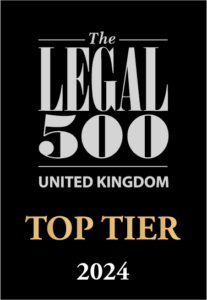Our dedicated team of specialists have a wealth of commitment, experience and knowledge in advising on all aspects of restructuring and insolvency.
What can our insolvency solicitors help with?
The team advises on transactions, strategic planning and viability reviews as well as carrying out claims work and other litigation arising on both corporate and personal insolvency matters. They offer responsive, practical, commercial and technical advice to their clients, often in a time-critical manner.
With a primary focus in working with licensed insolvency practitioners, the team advise on strategy and process for their appointments. They provide guidance to ensure full compliance by office holders of their statutory and regulatory duties with a view to maximising recoveries to the insolvency estate for the benefit of creditors. This in turn means that they are well placed to advise those that are owed monies by insolvent entities within the UK as to how to maximise their recovery and the options and strategy for enforcement.
Providing assistance to directors, members and boards as to their duties and responsibilities when their entity becomes distressed, the team provides sensitive and discreet guidance on the options for rescuing the business where feasible or winding up in an orderly manner. Where a company is ceasing to trade but is solvent, the team advises on solvent liquidations and group reorganisations and related transactions.
Our team of insolvency solicitors always apply technical knowledge to ensure the best possible outcome for clients in a cost-efficient manner, taking into account the commercial reality of the situation.
The team frequently draw on the expertise of others within the wider firm to provide tailored advice in connection with issues relating to property, healthcare, employment, education, charities and shipping and marine.
Through our separate creditor-led practice Litigation & Recoveries, our specialists can assist with the process for initiating the formal insolvency of entities and individuals that owe money.
Who do our insolvency lawyers help?
- Insolvency Practitioners
- Creditors owed monies by an insolvent party
- Banks, other lenders and financiers
- Suppliers to an insolvent party
- Landlords of insolvent tenants
- Directors and boards
- Shareholders
Why choose us for insolvency legal advice
The team is solely dedicated to restructuring and insolvency work and is known for its breadth and depth of experience in this area.
With a technical focus and reputation for dealing with more complex matters arising out of insolvency and business distress, the team has been recognised for their skill and problem-solving capabilities.
With time being of the essence in most situations involving a distressed or insolvent entity, the team understand the need for urgency and pride themselves on their responsiveness and efficiency.
Our team of insolvency lawyers is focused on working collaboratively with their clients to achieve the required outcome in the timeframe needed and seek to maintain commerciality at all times.














